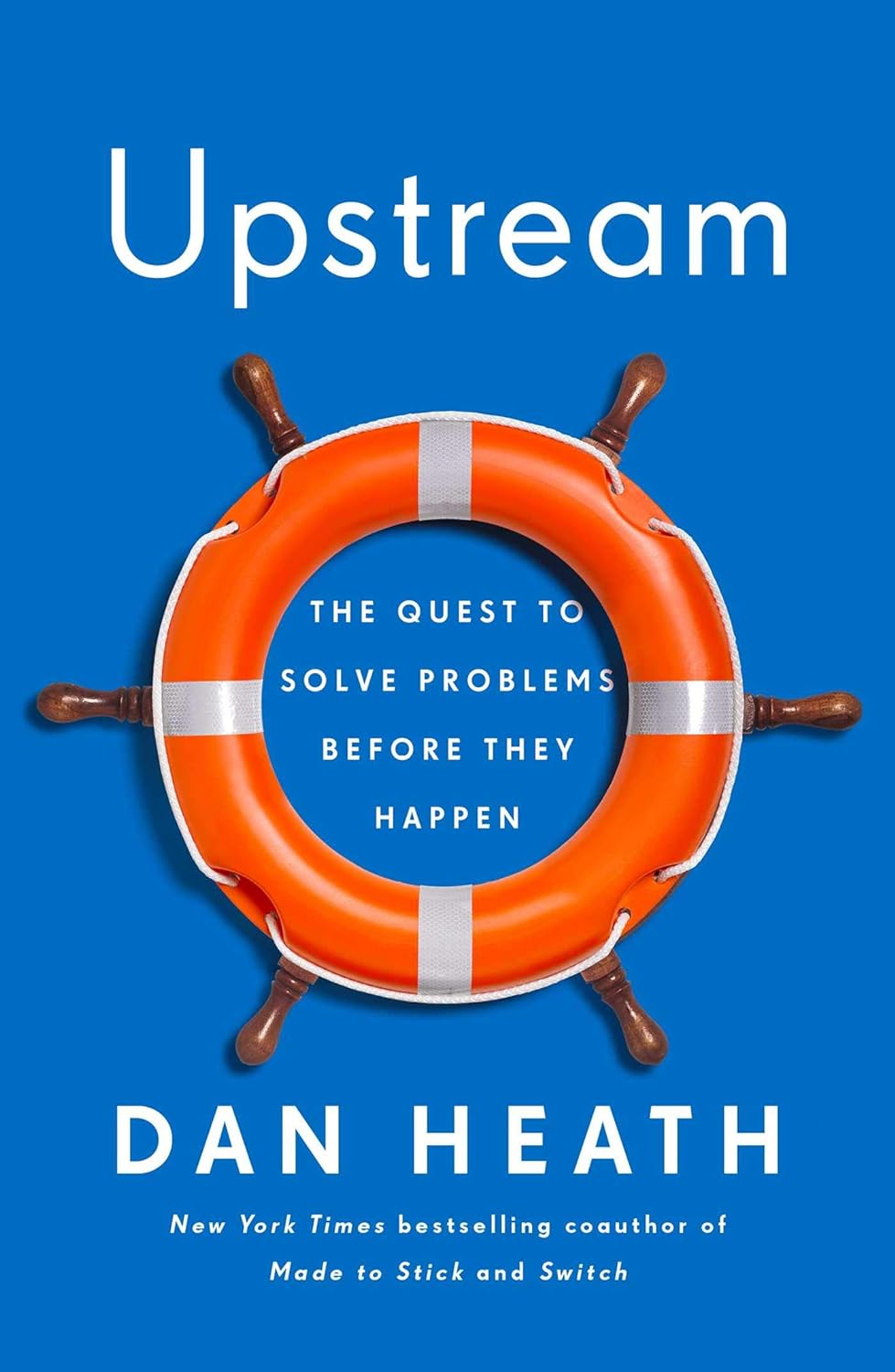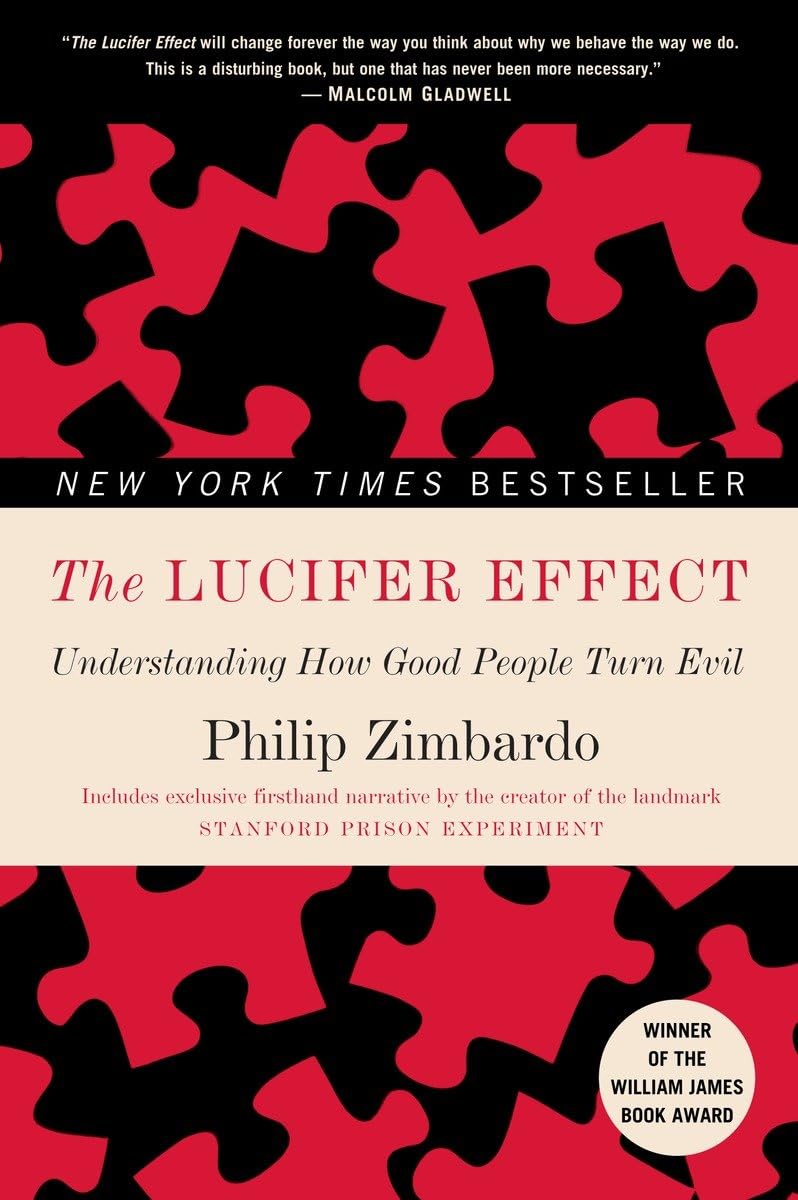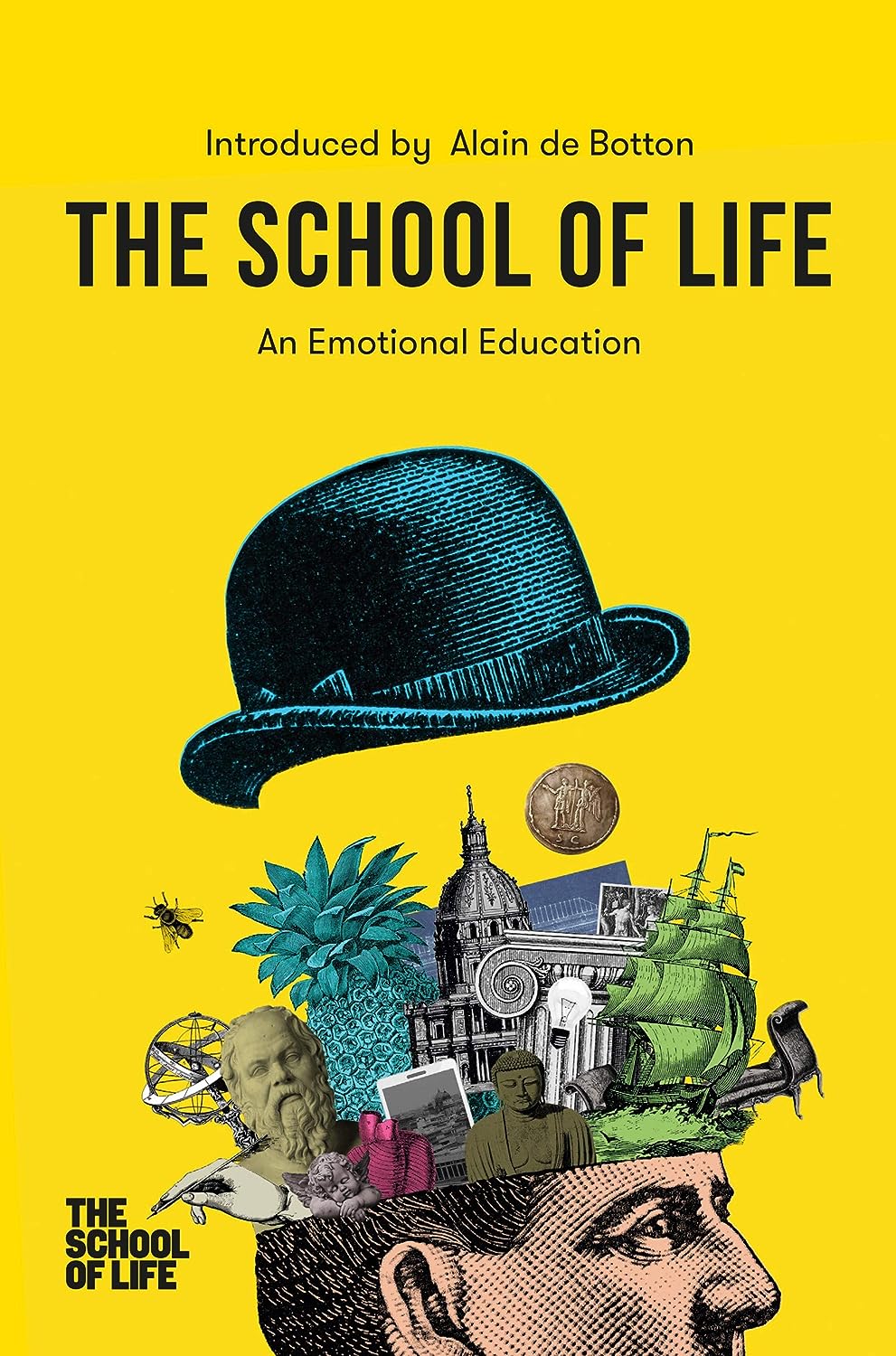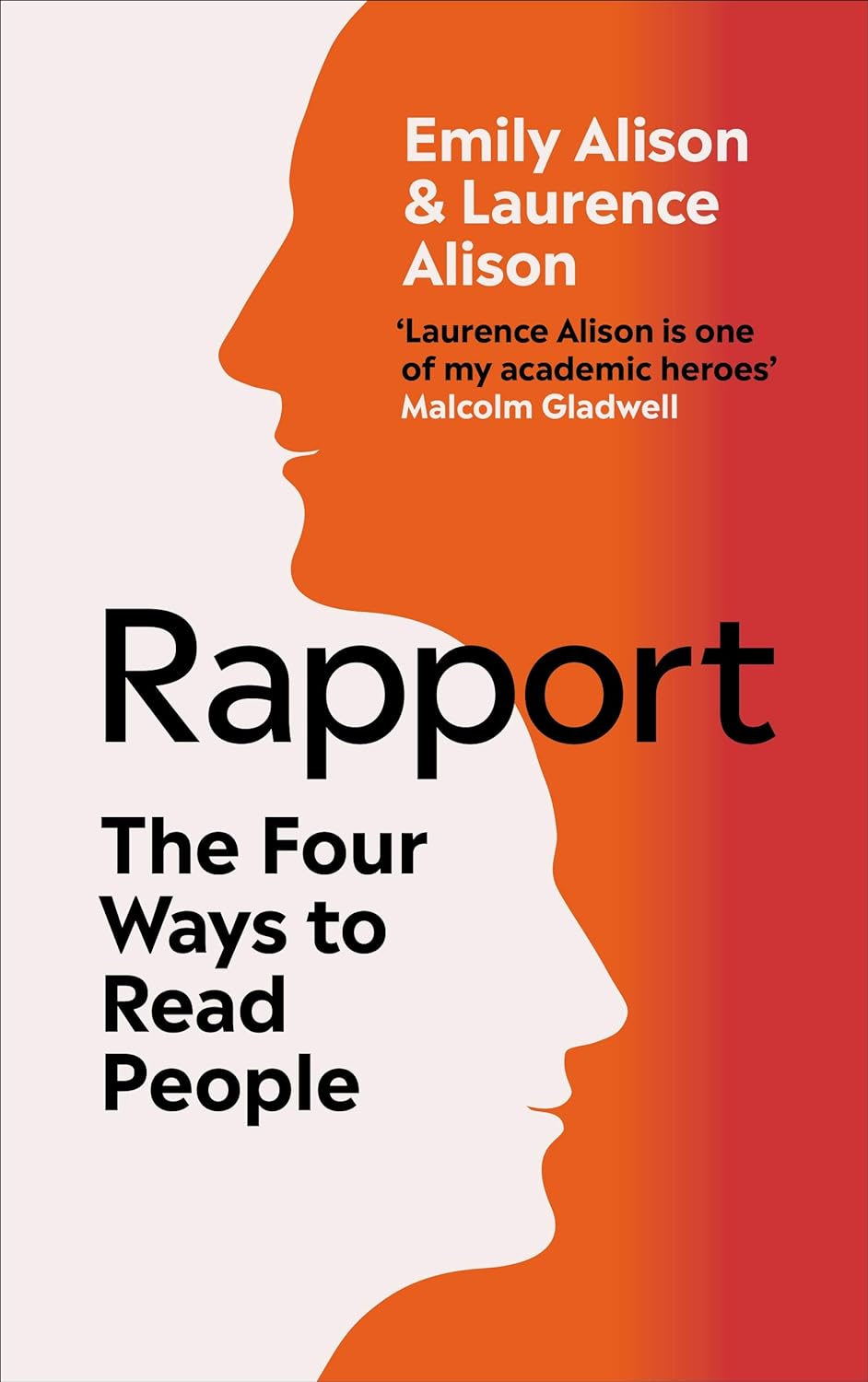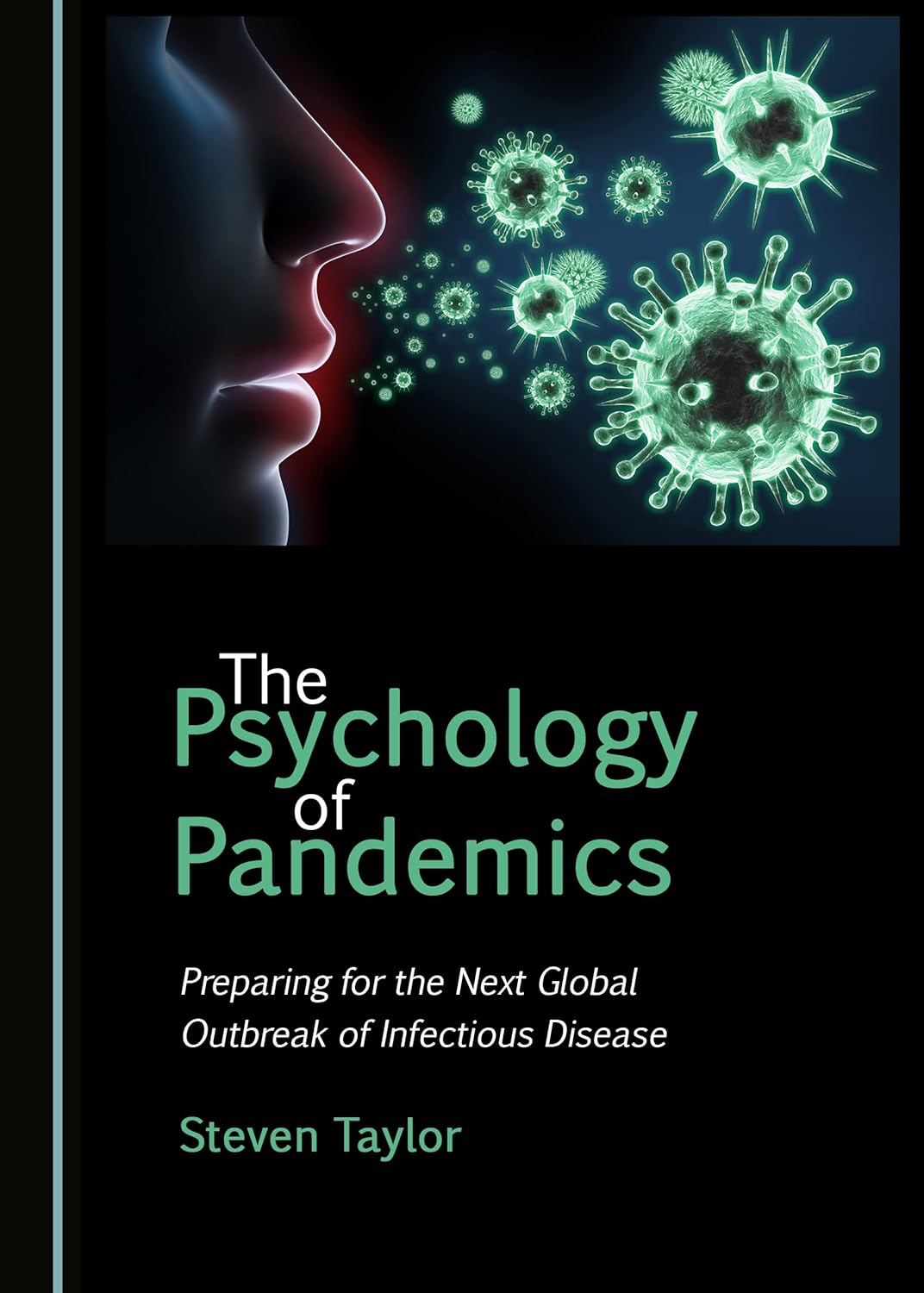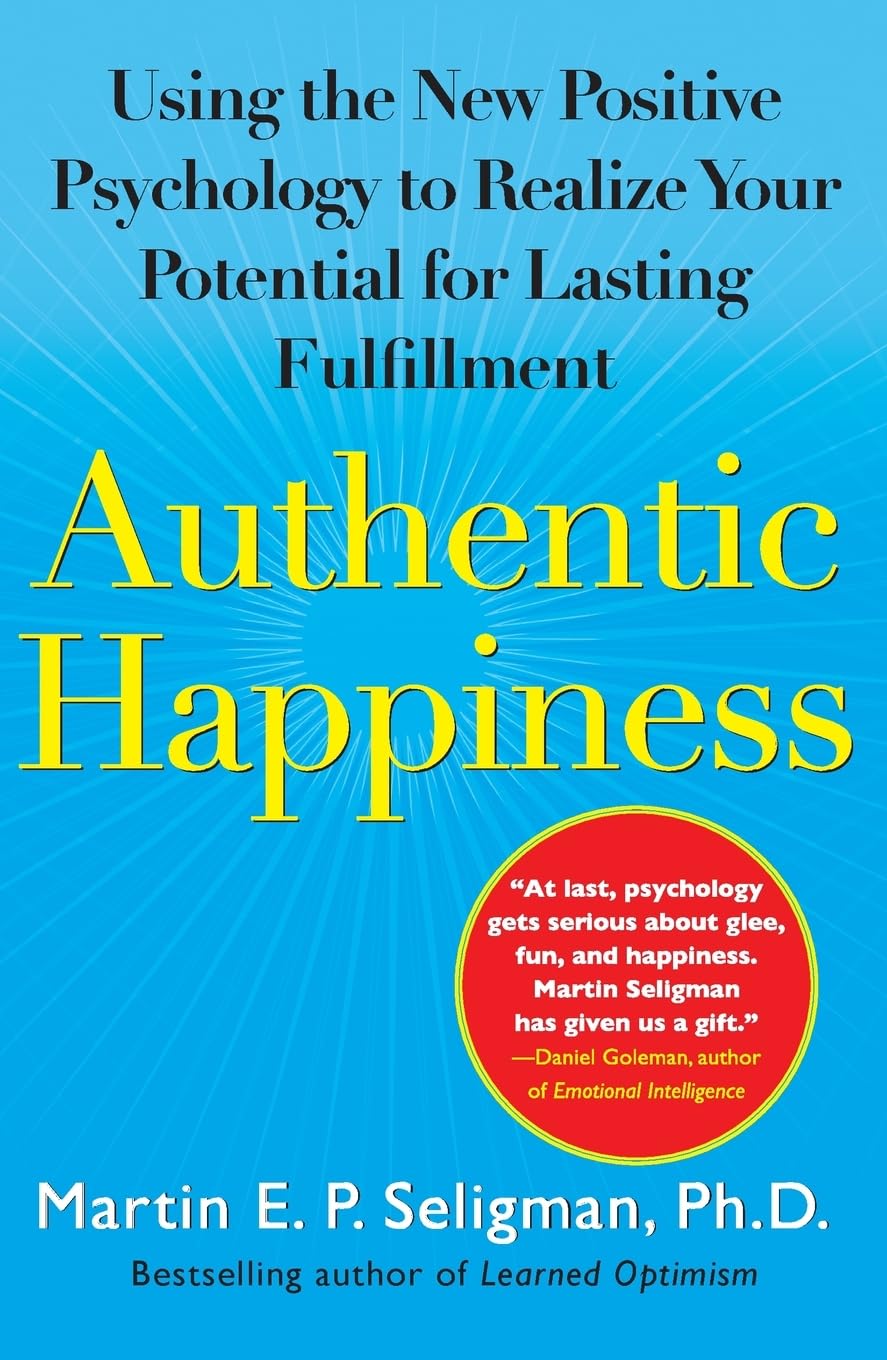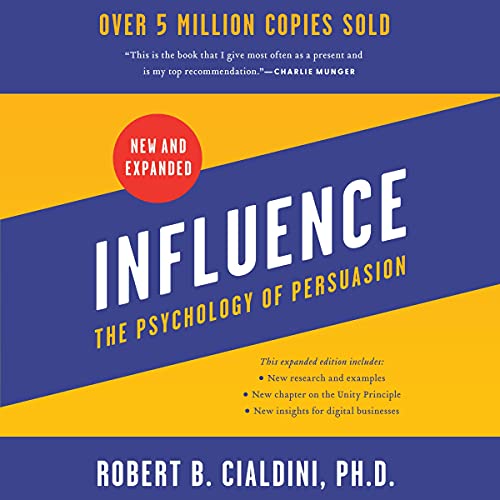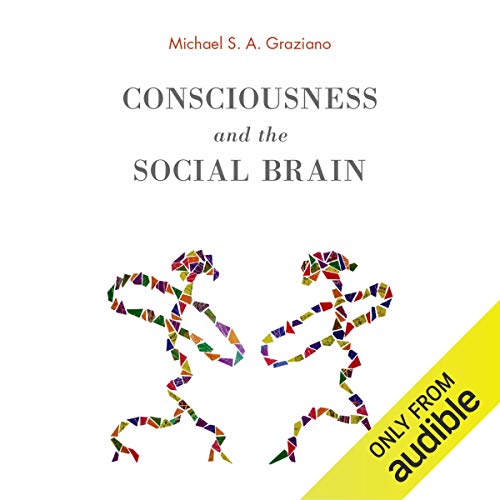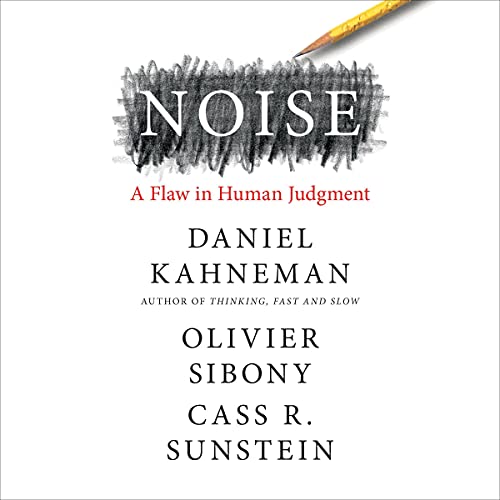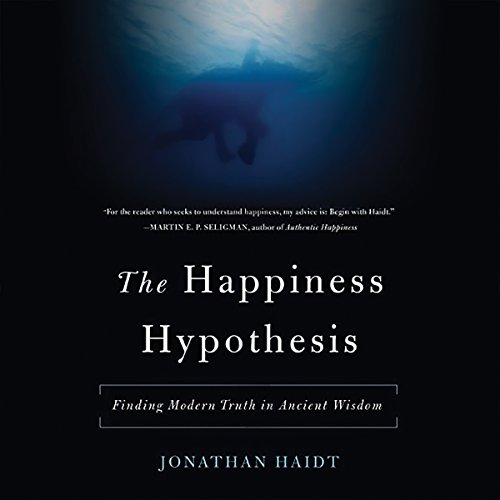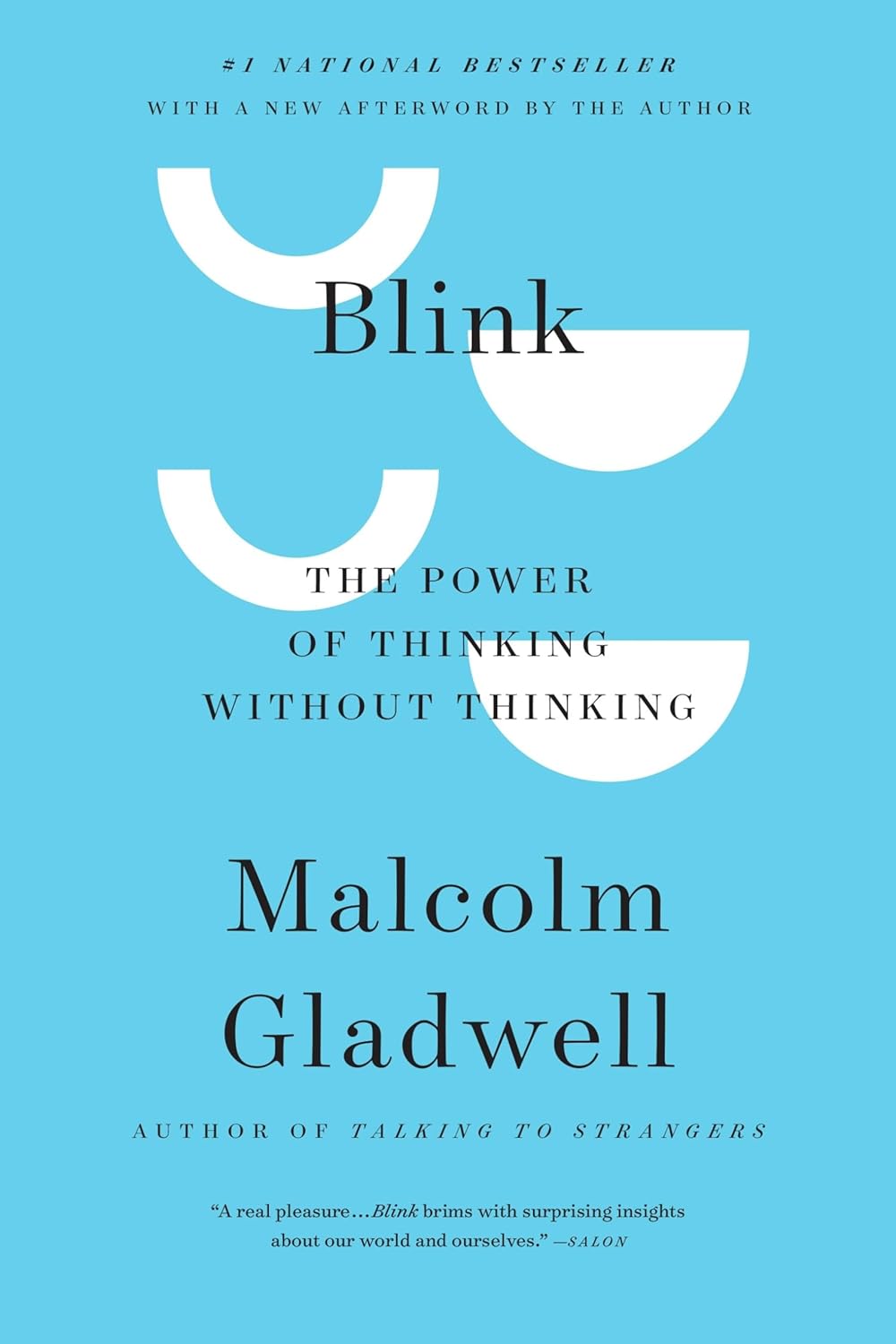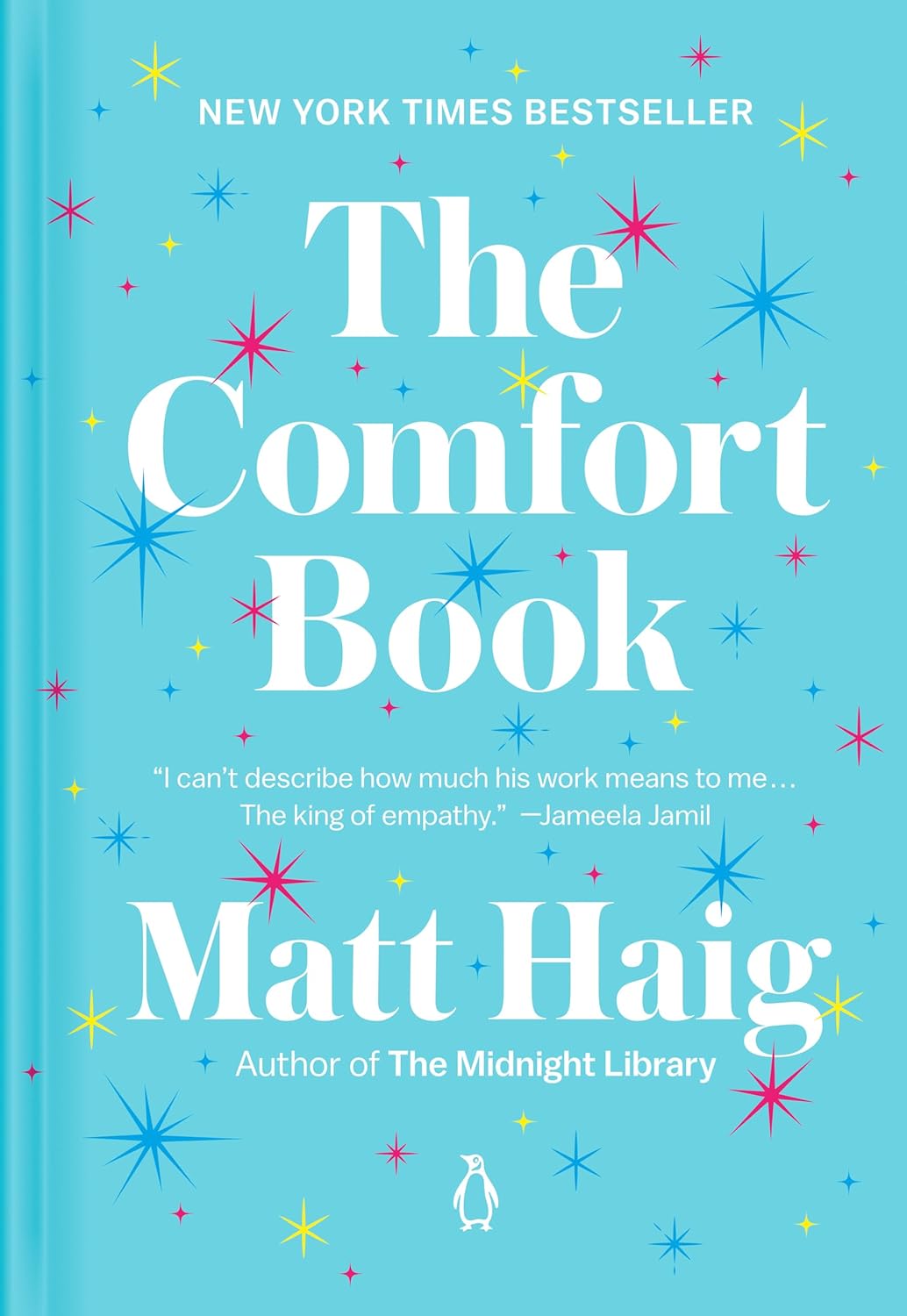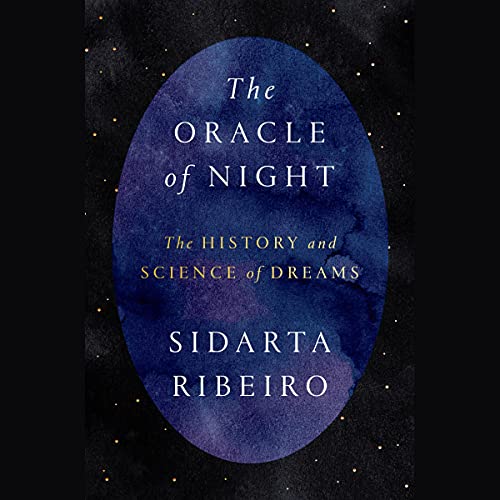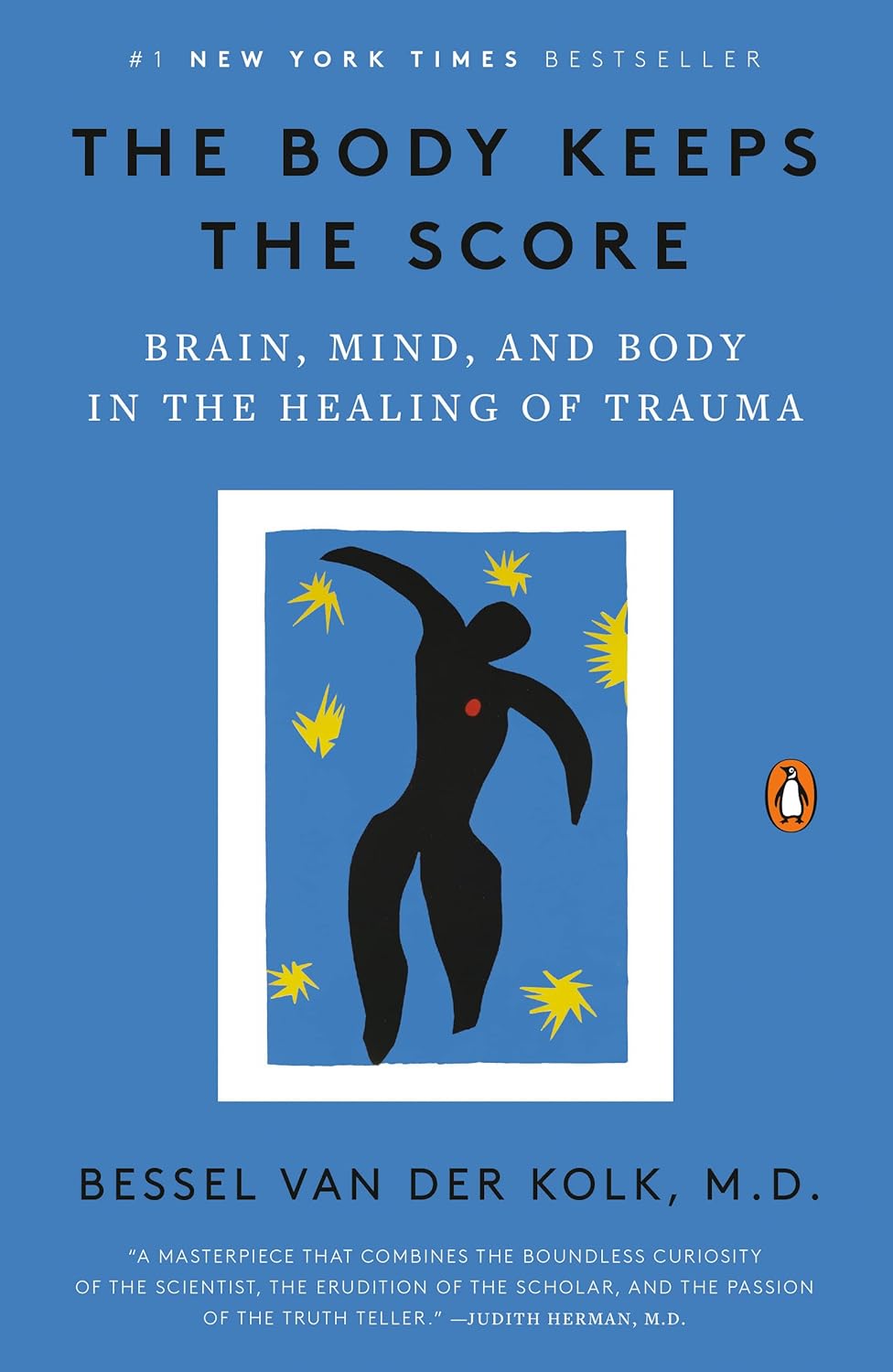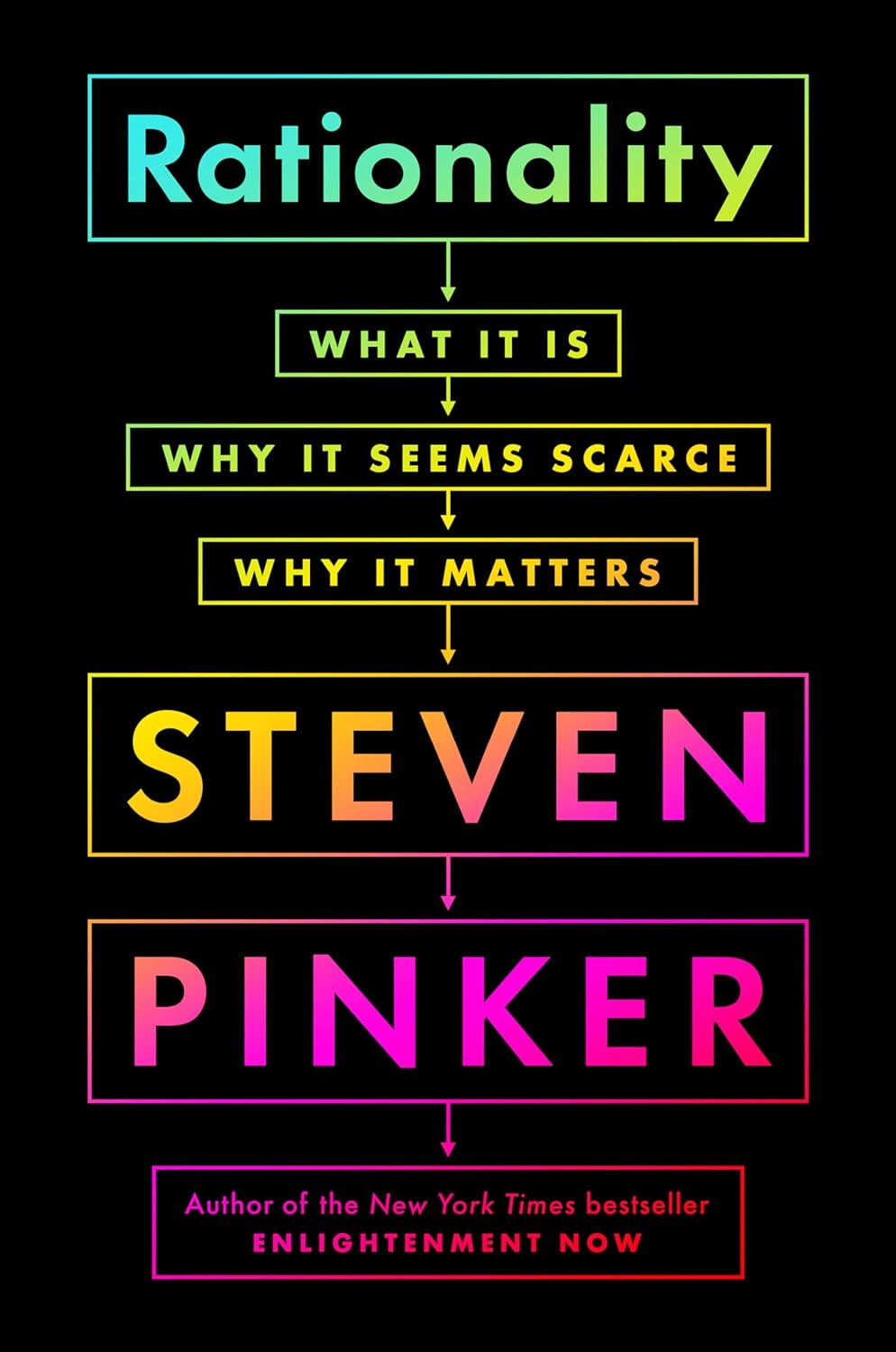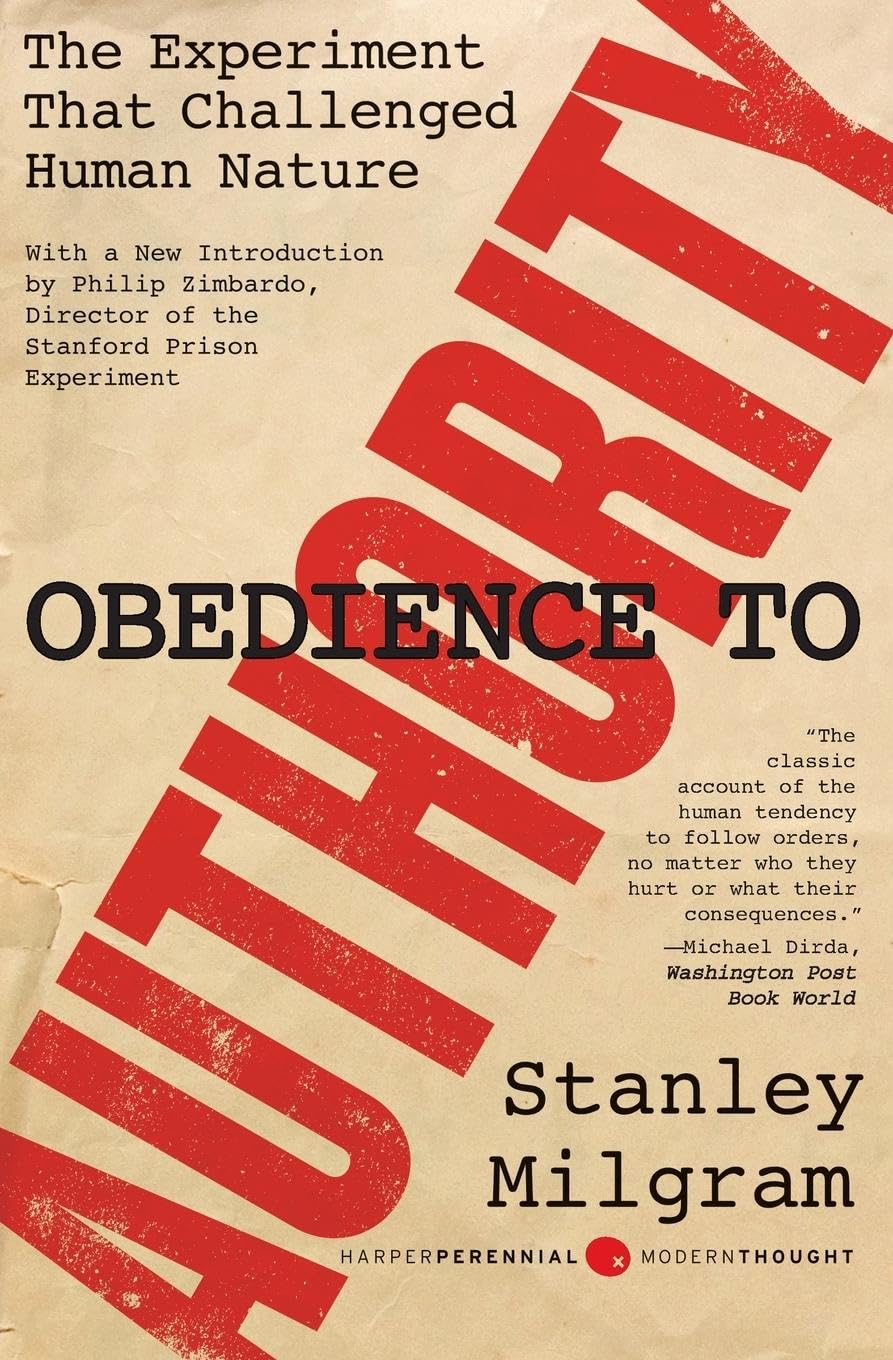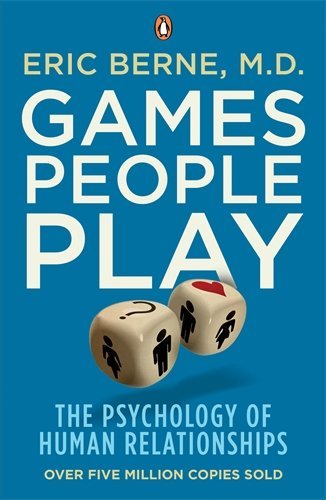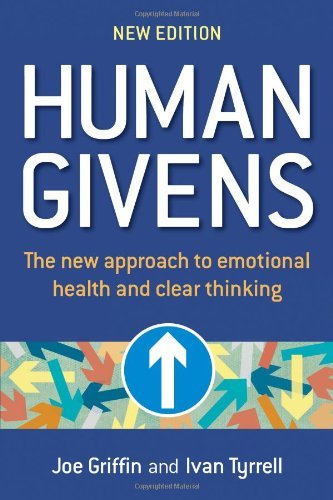For those seeking to understand the complexities of human behavior, look no further than Discovery’s new community for book lovers. With a focus on real people over robots, readers can trust book recommendations from fellow enthusiasts.
In a world where information is readily available, it’s natural to want to understand the mental processes that drive our actions. In this post, Discovery has compiled a list of the top 25 psychology books for readers of all levels, providing a comprehensive guide to gaining insight into human behavior.
1. Upstream:
Dan Heath’s Upstream offers a solution to the never-ending cycle of reacting to problems as they arise. Heath believes that to prevent problems from occurring, it is crucial to understand the psychological forces that cause them. One of these forces is “problem blindness,” where a persistent problem becomes so normalized that it is no longer perceived as a problem.
In Upstream, Heath provides real-life case studies of individuals, businesses, and institutions that have successfully overcome their problems by changing their mindset. By learning from these examples, readers can bolster their defenses against potential problems and start to prevent them from happening in the first place.
To implement this approach, Heath suggests taking an upstream approach by identifying and addressing the root causes of problems before they escalate. This involves asking questions such as “What is causing this problem?” and “What can we do to prevent it from happening again?”
Overall, Upstream offers a practical and actionable approach to problem-solving that emphasizes prevention over reaction. By changing our mindset and taking an upstream approach, we can solve problems before they even occur.
2. The Lucifer Effect: Understanding How Good People Turn Evil by Philip G. Zimbardo
In “The Lucifer Effect: Understanding How Good People Turn Evil,” Philip G. Zimbardo provides a detailed account of his controversial Stanford Prison Experiment. Zimbardo’s study aimed to investigate the effects of situational factors on conformity by placing college student volunteers in a simulated prison environment for two weeks.
However, the experiment encountered serious issues and had to be terminated after only six days due to the extreme behavior exhibited by the participants. Zimbardo’s role as the prison warden has been criticized for its ethical implications.
Despite the controversy surrounding the experiment, Zimbardo’s book delves into the decades of subsequent research on the psychological and social variables that lead “average” people to engage in immoral behavior. It is considered one of the most influential books on psychology today.
The book’s title refers to the concept of the “Lucifer Effect,” which describes how good people can turn evil under certain circumstances. Zimbardo argues that situational factors such as power dynamics and groupthink can override an individual’s moral compass, leading them to engage in harmful behavior.
3. The School of Life: An Emotional Education by Alain de Botton
In his book, The School of Life, Alain de Botton addresses the common feeling of something missing in people’s lives despite academic success. The book aims to equip individuals with the tools and self-knowledge to thrive in the modern world. With chapters on increasing productivity at work and handling interpersonal relationships, this emotional education is sure to help readers develop resilience to life’s dilemmas and become more emotionally intelligent.
The book’s focus on emotional education is particularly relevant in today’s society, where emotional intelligence is becoming increasingly important in the workplace and in personal relationships. By providing practical advice and exercises, The School of Life helps readers navigate the challenges of modern life and develop a deeper understanding of themselves and those around them.
4. Rapport: The Four Ways to Read People by Emily and Laurence Alison
Emily and Laurence Alison, forensic psychologists with thirty years of experience, have developed a unique model for interpersonal communication in their book Rapport. This model is based on four types of interactions: Control, Capitulate, Confront, and Co-operate. Each type is represented by an animal: lion, mouse, Tyrannosaur, and monkey, respectively.
The Control type is characterized by dominance and a desire to control the conversation. The Capitulate type, on the other hand, seeks to avoid conflict and may give in easily. The Confront type is aggressive and confrontational, while the Co-operate type is collaborative and seeks to find common ground.
By understanding these four types, individuals can better navigate difficult conversations and shape them to their advantage. The authors provide practical advice on how to identify each type and how to respond to them effectively.
Rapport has received praise for its revolutionary approach to communication. It is a valuable resource for anyone looking to improve their interpersonal skills and handle high-stress interactions with ease.
5. The Psychology of Pandemics: Preparing for the Next Global Outbreak of Infectious Disease by Steven Taylor
Steven Taylor’s book, “The Psychology of Pandemics,” emphasizes the importance of understanding the psychological factors that contribute to the spread of infectious diseases. The book highlights how nonadherence to vaccination and hygiene programs can increase the risk of infection. Furthermore, it explains how psychological factors play a significant role in mental health, including coping with the threat and loss of life.
Taylor argues that understanding psychology is crucial in managing societal problems that accompany pandemics. He explains that the same problems recur every time we face a pandemic, ranging from excessive fear to maladaptive behaviors and xenophobia. These problems are not unique to COVID-19, and history has shown that they have been present in previous pandemics as well.
The book provides insights into the psychological impact of pandemics, which can help us prepare for future outbreaks. By understanding the psychological factors that contribute to the spread of infectious diseases, we can develop effective strategies to curb the spread of pandemics.
6. Authentic Happiness: Using the New Positive Psychology to Realize Your Potential for Lasting Fulfillment by Martin E. P. Seligman
Authentic Happiness, written by Martin Seligman, is a book that discusses the nature of real happiness and the science of Positive Psychology. According to Seligman, happiness is not solely determined by factors such as genes or luck, but it is more about focusing on internal strengths rather than weaknesses. Seligman argues that maintaining a positive mindset and building on one’s strengths is the most reliable way to achieve long-lived happiness.
The book provides exercises, brief tests, and interesting programs that help readers identify their virtues and use them most efficiently. The book’s launch in 2004 sparked an international debate over the nature of real happiness and marked the beginning of the discussion of happiness in a scientific way.
Authentic Happiness has been widely acclaimed for its practical approach to happiness and its emphasis on positive psychology. The book is a valuable resource for anyone seeking to achieve lasting fulfillment and happiness in their lives.
7. Influence: The Psychology of Persuasion (New and Expanded) by PhD Robert B. Cialdini
In his book Influence: The Psychology of Persuasion (New and Expanded), Dr. Robert B. Cialdini provides readers with seven principles of influence that are backed by 35 years of scientific research. The book offers new insights, examples, and research, particularly in relation to the age of the internet.
Each of the seven principles has a dedicated chapter that describes how it works, where it is most applicable, and how it can be applied in everyday life. The latest edition of the book includes a new principle called “Unity.”
This book is highly recommended for anyone who wants to learn about the art of ethical persuasion in a modern context. It provides readers with practical advice on how to see through other people’s attempts at deceit and how to apply the principles of influence in their own lives.
8. Consciousness and the Social Brain by Michael S. A. Graziano
Consciousness is a complex and elusive phenomenon that has puzzled scientists for centuries. In his book, Consciousness and the Social Brain, Michael S. A. Graziano explores the nature of consciousness and how the brain creates it. Graziano’s theory is that the brain’s ability to be socially intelligent, to understand the thoughts and feelings of others, also allows for self-awareness.
According to Graziano, human awareness is a physical phenomenon that is built upon layers of information that the brain has gathered, processed, and rendered. He argues that the brain’s complex circuitry allows it to be socially aware, which in turn allows for self-awareness. This theory has sparked much debate, with some arguing that reducing consciousness to physicality is overly reductive.
Despite the controversy, Graziano’s book provides a fascinating scientific journey through the mysteries of consciousness. It delves into the workings of the brain and how it creates our subjective experience of the world. Through his research, Graziano sheds light on the mechanisms behind our conscious experience, offering new insights into one of the most fundamental aspects of human existence.
If you’re interested in learning more about human interaction and leadership, be sure to check out our lists of the 60 Best Nonfiction Books of the 21st Century or the 40 Best Leadership Books of All Time!
9. Noise: A Flaw in Human Judgement by Daniel Kahneman, Olivier Sibony, and Cass R. Sunstein
In their book Noise, Kahneman, Sibony, and Sunstein explore the concept of variability in judgments and decision-making. The authors argue that most of our decisions are influenced by external factors, or “noise,” which can occur at different times and places.
The book combines the authors’ scholarly expertise with additional research to provide a comprehensive guide on the topic of noise. It not only outlines what is already known about the subject, but also presents new theories about how noise affects decision-making.
For those interested in understanding the factors that shape or bias decision-making, Noise is an excellent resource. The authors provide practical advice on how to minimize the impact of noise and improve one’s thinking.
10. The Happiness Hypothesis: Finding Modern Truth in Ancient Wisdom by Jonathan Haidt
Jonathan Haidt, a professor of social psychology, presents his research on moral foundations theory in his book, The Happiness Hypothesis. He explores the ancient wisdom of historical thinkers such as Buddha, Plato, and Jesus, and connects their teachings to contemporary psychological findings.
Haidt outlines the fundamental meanings of ancient lessons on happiness, virtue, and personal fulfillment, and uses these ideas to develop his own “10 Great Ideas” about happiness. He then applies these ideas to modern-day living, recognizing the need to update old methods to match current lifestyles.
Haidt emphasizes the importance of understanding how ancient wisdom can be applied in today’s world, acknowledging that modern-day distractions such as social media and technology were not present in ancient times.
11. Blink: The Power of Thinking Without Thinking by Malcolm Gladwell
In his book Blink, Malcolm Gladwell explores the power of rapid cognition, or the ability to make judgments and decisions quickly and instinctively. Gladwell argues that this skill, also known as “thin-slicing,” is a valuable tool that can lead to better decision-making in a variety of situations.
Gladwell uses real-life examples to illustrate the concept of thin-slicing, such as the ability of art experts to quickly determine the authenticity of a piece of art based on a brief glance. He also discusses the potential pitfalls of relying too heavily on thin-slicing, such as the dangers of implicit bias.
12. The Comfort Book by Matt Haig
The Comfort Book by Matt Haig is a personal and warm hug in the form of a book. It offers a guide to self-love, contentment, and emotional strength. Haig’s reflections are based on his own experiences during hard times, with the hope that they can help others through similar situations.
One of the main ideas of the book is that our best and clearest revelations often come when we are at our lowest. However, we should not have to figure everything out ourselves, especially when we are suffering. Haig understands this and draws on maxims, meditations, and the inspirational lives of others to nurture readers’ inner strength and provide advice like a wise, commiserative old friend.
The Comfort Book is unique in that it focuses on emotions and personal growth, rather than traditional psychology. It offers readers a sense of comfort and understanding, letting them know that they are not alone in their struggles.
13. The Oracle of Night: The History and Science of Dreams by Sidarta Ribeiro
Sidarta Ribeiro’s book, “The Oracle of Night,” explores the history and science of dreams. Ribeiro delves into the origins of dreams, tracing them back to our ancient ancestors and the earliest cave paintings. He presents new research on the role of dreaming in memory recall and transformation, and the oracular nature of dreams.
Contemporary neuroscience and psychology have uncovered many findings about dreams, including their role in healing trauma and consolidating learning. Ribeiro builds on these findings to provide a fresh perspective on the purpose and power of dreams.
“The Oracle of Night” is a great book club book, as it is sure to ignite conversation and debate. Ribeiro’s writing style is clear and compelling, making this book a page-turner from beginning to end.
14. The Body Keeps the Score: Mind, Brain and Body in Trauma Recovery by Bessel Van Der Kolk
In his book, The Body Keeps the Score, Bessel Van Der Kolk, a renowned expert on traumatic stress, emphasizes the profound impact of trauma on both the body and brain. Drawing on his extensive experience as a therapist, Van Der Kolk advocates for a new approach to trauma recovery that focuses on healing the mind, brain, and body.
The central tenet of this approach is to create a safe environment for trauma survivors to reconnect with their bodies. Van Der Kolk argues that traditional therapies, such as talk therapy and medication, may not be sufficient to address the physical effects of trauma. Instead, he proposes a range of therapeutic interventions, including neurofeedback, theater, meditation, play, and yoga, that can help individuals heal from trauma in a more holistic way.
Van Der Kolk’s approach is grounded in both compassion and scientific rigor, making it accessible to readers of all levels. By highlighting the importance of treating trauma as a whole-body experience, The Body Keeps the Score offers a unique perspective on trauma recovery that has been hailed as a game-changer in the field.
15. Rationality: What It Is, Why It Appears Scarce, Why It Matters by Steven Pinker
In his book, Rationality, cognitive psychologist Steven Pinker argues that humans are not inherently irrational, despite the prevalence of irrationality in the world. Pinker attributes this discrepancy to the fact that humans tend to think within the context of low-tech settings, and as a result, do not take advantage of tools such as critical thinking, logic, and probability. These tools, which have been discovered by some of the world’s best thinkers, are not typically a part of our education.
Pinker’s book aims to make readers more rational by providing them with these tools and analyzing the crippling effects of irrationality. The book presents these tools clearly and with good humor, making them accessible to readers of all backgrounds.
The importance of rationality cannot be overstated, as it allows individuals to make more informed decisions and avoid common cognitive biases. By understanding the principles of rationality, individuals can improve their ability to reason, make better decisions, and ultimately lead more fulfilling lives.
16. Obedience to Authority: An Experimental View by Stanley Milgram
Stanley Milgram’s experiments in the 1960s aimed to study obedience to authority. The experiments involved volunteer subjects who were instructed to administer what they believed were increasingly painful shocks to another human being. The goal was to observe how far people would obey orders even when they knew them to be morally questionable. The experiments were controversial at the time due to their perceived immorality, but they have since been recognized as a significant breakthrough in understanding obedience and psychology as a whole.
Milgram’s book, Obedience to Authority, is considered a classic in psychology. It offers Milgram’s personal insights into his groundbreaking methods, theories, and post-experiment conclusions.
The book has been praised for its contribution to the understanding of obedience and the role of authority in shaping human behavior. Milgram’s experiments have also been used to shed light on real-world situations, such as the behavior of Nazi soldiers during the Holocaust.
17. Games People Play: The Psychology of Human Relationships by Eric Berne
Eric Berne’s book, Games People Play, delves into the psychology behind social interactions. According to Berne, people engage in “social games” such as power games, sexual games, marital games, and competitive games within friendships. These games are either functional or dysfunctional.
Berne identifies several types of mind games that people play, including status contests and mental games in couples. In status contests, the game becomes a back-and-forth game of “I know better,” while couples are prone to playing mental games claiming each is holding the other back. Berne explains that these interactions are unconscious ploys and maneuvers that rule our lives.
Berne’s book offers creatively poised insights into the meaning behind social interactions, making it an influential and striking bestseller. It sheds light on the types of games people play and how they affect human relationships.
18. Emotional Intelligence: Why It Can Matter More Than IQ by Daniel Goleman
In his book, “Emotional Intelligence”, Daniel Goleman explains how emotional intelligence can be more important than IQ in determining a person’s success in life. He argues that while a high IQ is important, it is not the only factor that makes a person smart or successful. Instead, emotional intelligence, which is made up of self-awareness, self-discipline, and empathy, can be just as important.
Goleman draws on contemporary cognitive and behavioral research to show how emotional intelligence can be developed and strengthened at any age.
By improving emotional intelligence, individuals can benefit their health, work, and relationships. Goleman’s analysis breaks down human processes into “two minds”, the rational and the emotional, to detail how they together shape the ways that people move through the world.
19. Human Givens: An Innovative Approach to Emotional and Mental Health by Joe Griffin and Ivan Tyrrell
Human Givens is a guide to emotional and physical health, as well as education, using the “human givens” approach. According to authors Joe Griffin and Ivan Tyrrell, every individual is born with innate knowledge patterns known as “human givens,” which are experienced as physical and emotional needs. These needs must be met for one to reach their full mental and physical potential.
Griffin and Tyrrell propose that how an individual’s innate needs connect with the world can shape not only their own health and happiness but also that of their family and friends. Human Givens explores what every person needs to flourish and how to actively pursue those things. The approach is backed up by new scientific findings and ideas about how the mind works, as well as how to use those ideas to overcome the anxieties of the modern world.
The Human Givens approach emphasizes the importance of meeting one’s innate emotional and physical needs, which include the need for security, autonomy, attention, emotional connection, status, and meaning. By understanding and satisfying these needs, individuals can improve their emotional and mental health, leading to a more fulfilling life.
Human Givens also offers practical tools and techniques for dealing with a range of emotional and mental health issues, including anxiety, depression, addiction, and trauma. These tools include cognitive-behavioral therapy, relaxation techniques, and mindfulness practices.
Summary
Psychology books offer valuable insights into the human mind, behavior, and emotions. They cover a wide range of topics, including cognitive psychology, social psychology, developmental psychology, abnormal psychology, and more.
These books can help readers understand themselves and others better, improve their relationships, and develop coping strategies for life’s challenges. Some popular psychology books include “Thinking, Fast and Slow” by Daniel Kahneman, “The Power of Habit” by Charles Duhigg, and “Man’s Search for Meaning” by Viktor Frankl.
